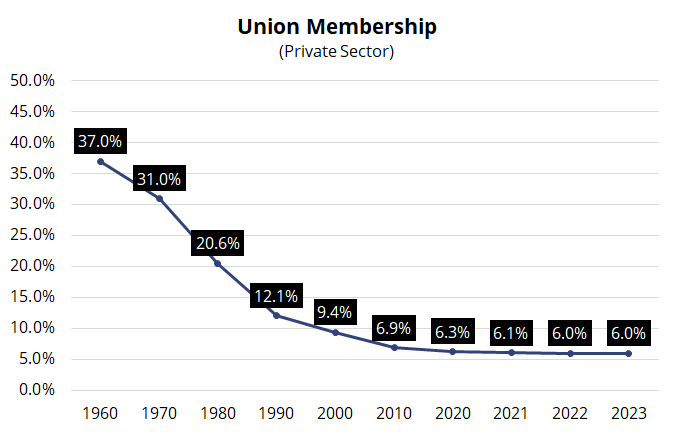What is a union?
To understand our position on unions, it is helpful to understand not only what a union is, but what a union is not. A union is not a club or a social organization.
A union is a business.
-
Unions represent their members in dealings with employers. In return, unions charge fees for their services. These fees are often deducted directly from associate paychecks.
-
Today, just 6% of workers in the private sector belong to a union. Like any business, unions need a revenue stream to stay in business. This revenue comes from dues paying members. Unions need new members to survive.

Source: Department of Labor
-
The main source of money for unions comes from dues, fees and assessments paid by their members.
You are an attractive target because the Union needs more members and money.
The more members that unions have, the more membership fees and dues they can collect. They have a vested interest in you signing up to be a member.
What Unions Can and Cannot Do
Unions CAN
-
Collect dues, fees, fines and assessments
-
Negotiate and make proposals
-
Refuse to act on a member's grievance
-
Represent all associates even those who voted against the union
-
Require members to go on strike
-
Discipline, issue penalties or fine members who violate union by-laws
Unions CANNOT
-
Guarantee a union contract
-
Guarantee higher wages
-
Guarantee better benefits
-
Guarantee hours
-
Guarantee employment
-
Prevent layoffs
-
Prevent termination for just cause
-
Set job standards
-
Fire or transfer managers